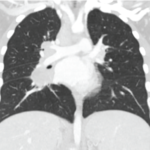(Reuters)—Drugmaker Pfizer Inc on Wednesday filed a lawsuit against Johnson and Johnson, saying its rival’s contracts with health insurers for blockbuster rheumatoid arthritis drug, Remicade, were anticompetitive and blocked sales of Pfizer’s new biosimilar. Pfizer said in the suit that Johnson and Johnson is offering discounts on its Remicade treatment in exchange for essentially excluding…
The ACR/CHEST ILD Guidelines in Practice, a video
In collaboration with the American College of Chest Physicians, the ACR released two new comprehensive guidelines aimed at improving the screening, monitoring, and treatment of patients with interstitial lung disease (ILD) secondary to systemic autoimmune rheumatic diseases (SARDs). Recently, Sindhu R. Johnson, MD, PhD, professor of medicine at the University of Toronto, Canada, director of the Toronto Scleroderma Program and principal investigator for the guideline, and Elana J. Bernstein, MD, MSc, Florence Irving associate professor of medicine in the Division of Rheumatology at Columbia University, New York City, and co-first author, presented a webinar to talk about how the guidelines were developed and present some of the recommendations and their rationale: Watch the recording now!
U.S. Democrats Urge Full Review Before Senate Vote on Latest Obamacare Attack
WASHINGTON (Reuters)—Democratic leaders in the U.S. Congress on Monday demanded that lawmakers wait to find out the budgetary and healthcare impacts of a new, last-ditch legislative effort by Republicans to repeal Obamacare before voting on it. In their long-running war on former President Barack Obama’s signature healthcare law, Senate Republicans are now proposing to replace…
Rheumatology Advocates Visit D.C. to Act for Arthritis
The ACR/ARHP’s annual fly-in to D.C. (#Act4Arthritis) was a huge success. More than 100 ACR/ARHP members and patients from across the nation attended meetings on Capitol Hill to advocate for people living with rheumatic diseases. In all, our advocates visited 138 Senate and House offices. This year’s fly-in on Sept. 25–26 coincided with the second-annual…
RISE Data Use to Be Highlighted at 2017 ACR/ARHP Annual Meeting
This year’s ACR/ARHP Annual Meeting, which takes place Nov. 3–8 in San Diego, features several opportunities to learn more about the ACR’s Rheumatology Informatics System for Effectiveness (RISE) Registry, and the data and tools it offers rheumatologists. For the first time, RISE data will be presented at the Annual Meeting by rheumatologists outside of the ACR’s…
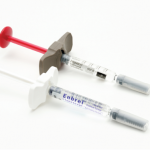
TNF Inhibitor Drug Tapering Successful in Some Patients with RA
MADRID—Scores on the Health Assessment Questionnaire for Rheumatoid Arthritis (HAQ) and C-reactive protein (CRP) levels were independent predictors of whether patients could be tapered successfully from a TNF inhibitor after having reached remission of their RA, according to findings presented in a session at the Annual European Congress of Rheumatology. Researchers also developed a composite…
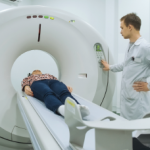
Whole-Body MRI, Ultrasound Imaging May Aid in Early Rheumatic Disease Diagnosis, Treatment
MADRID—Researchers say that whole-body MRI could yield an earlier diagnosis of spondyloarthropathy (SpA) in patients with early inflammatory joint symptoms, according to findings presented in a poster session at the Annual European Congress of Rheumatology (EULAR). The approach could lead to earlier treatment and better outcomes, they say. Investigators at the University of Leeds recruited…
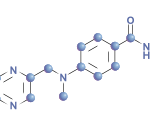
Effectiveness of Tofacitinib with Methotrexate, Adalimumab Therapy Evaluated in Patients with RA
MADRID—Tofacitinib (a JAK inhibitor) used with methotrexate (MTX) is not inferior to adalimumab (a TNF inhibitor) in rheumatoid arthritis (RA) patients who’ve had an inadequate response to MTX alone, according to results of a Phase 3B/4 trial presented in a session at the Annual European Congress of Rheumatology (EULAR). The findings came in a one-year…

Skype-Based Biopsychosocial Treatments Help Save Physical Therapy Patients Time, Trouble
It’s a bit ironic that when injured people are in pain—and their mobility is reduced—they are often expected to travel to a physical therapy clinic. For millions of people, such trips are a burden. In Australia, however, some patients are “letting movement come to them.” Novel research from The University of Melbourne shows that taking…
Treat-to-Target Strategy Evaluated for Fibromyalgia Care
Treat-to-target is a widely used approach for rheumatoid arthritis, in which rheumatologists prescribe treatments to reach established benchmarks of disease activity.1 Is it time for a similar approach for fibromyalgia treatment, even though its pathogenesis, disease-activity measures and treatment algorithms are less well understood? Three fibromyalgia researchers present their case in a new paper, “Treat-to-Target…
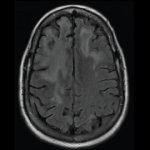
Fellows’ Forum Case Report: Progressive Multifocal Leukoencephalopathy and RA
Rheumatoid arthritis (RA) is a systemic autoimmune disease associated with erosive destruction of diarthrodial joints. Patients who are seropositive are more prone to developing extra-articular manifestations, such as rheumatoid lung, rheumatoid nodules and others. With the development of disease-modifying anti-rheumatic drugs (DMARDs), the incidence and severity of these extra-articular manifestations has declined. Below, we describe…
- « Previous Page
- 1
- …
- 111
- 112
- 113
- 114
- 115
- …
- 251
- Next Page »
